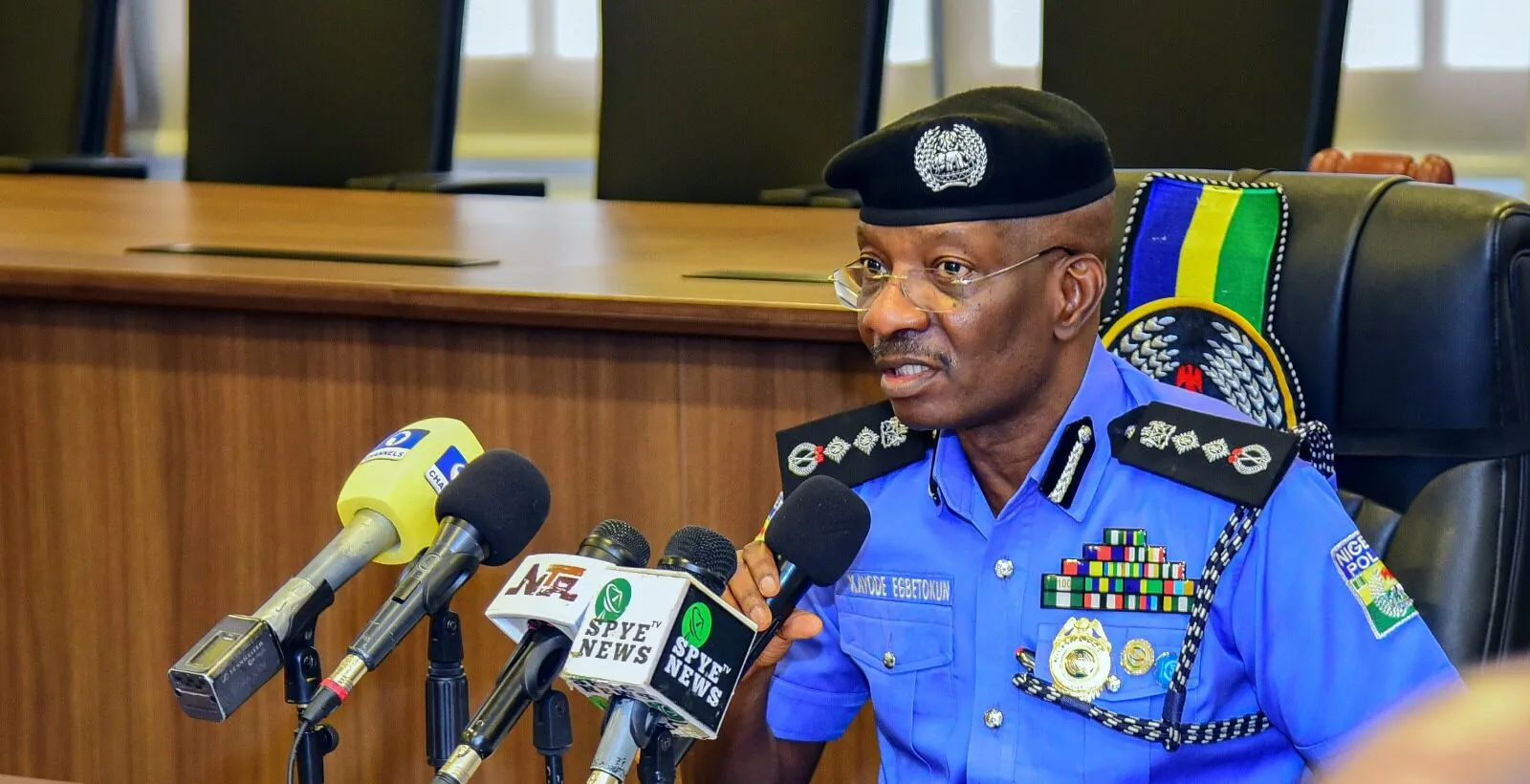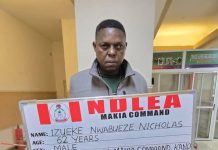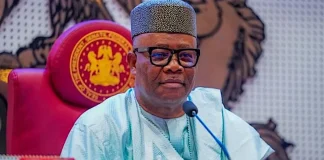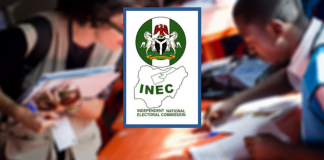🌿 Ruzu Non-Alcoholic Herbal Bitters
Ruzu Non-Alcoholic Herbal Bitters is a natural health supplement specially formulated to:
- ✅ Promote general wellness
- ✅ Detoxify the body
- ✅ Support the treatment of various ailments
Made from a powerful blend of 100% organic and medicinal herbs, Ruzu is completely alcohol-free, making it ideal for:
- 👪 All age groups
- 🌱 Health-conscious individuals
- 🌿 Anyone seeking non-alcoholic herbal remedies
Whether you're looking to boost your vitality, cleanse your system, or support healing the natural way, Ruzu Bitters offers a trusted herbal solution.
A crucial discussion is gaining traction as insecurity continues to plague Nigeria: to what extent should citizens defend themselves when the government appears incapable or unwilling to do so? A growing chorus of voices is questioning the boundaries of self-defense and calling for greater rights and access to resources that could enable communities to fend off attacks, from destroyed villages to legislative chambers. According to Titilope Joseph,
The national security discourse is subtly changing due to a surge of civil unrest. In the face of constant attacks by armed groups and a security infrastructure that is either completely nonexistent or overburdened, more communities are facing the sobering question: do we not have the right to defend ourselves if the state is unable to do so?
Although Nigerian law permits self-defense in some circumstances, the rise in citizen-led protest is taking the discussion beyond legal theory. As the state seems to crumble, a huge crisis of legitimacy is unfolding, with lawmakers, villagers, clerics, and attorneys all engaged in a high-stakes discussion about how far individuals should go to defend life and land.
In Katsina-Ala, Benue State, in early August, Fr. Benjamin Versue, a Catholic priest, stood amidst the burned-out remnants of a church rectory that he claimed he had sacrificed everything to construct. He said that suspected herdsmen who had taken over Ayetwar village and driven the locals from their ancestral houses set fire to the building. Not only did Fr. Versue lament a building on social media, but he also delivered a scathing critique of the Nigerian government’s inability to safeguard its people.
In a frustrated tone, he said, “Successfully disarming the people and making them vulnerable to their attackers is a credit to the Nigerian army.”
Even while his claims of military collusion have not been confirmed, they are consistent with a growing belief in many rural areas that the Nigerian government is incapable or unwilling to provide for their protection.
Similar tales of despair and suffering are now coming out of Plateau, Southern Kaduna, Zamfara, and portions of Niger and Sokoto states—regions where residents claim they encounter armed invasions with little to no government response—although Benue has long been a hotbed for farmer-herder conflicts. The right to fight back is the one remedy that many have started to promote in the absence of state protection.
According to Nigeria’s 1999 Constitution, Section 33(2)(a), every citizen has the right to life; but, if someone is killed while defending themselves or others from unlawful violence, that right is not breached.
Both the Penal Code (which applies in the north of Nigeria) and the Criminal Code (which applies in the south) permit the use of force in self-defense as long as it is appropriate and reasonable given the danger.
When applied to actual situations in war areas, however, this legal certainty starts to become hazy. Human rights attorney Chioma Nwafor asserts that while the law permits individual defense, it forbids vigilantism and a weapons race. The problem is that people often feel they have no other option in rural places.
With some restrictions, the right to self-defense has been maintained by a number of recent court decisions. The court emphasized in Ekpoudo v. State (2021) that force must be necessary and not excessive.
The Supreme Court denied a self-defense plea in Sunday Jackson v. State, concluding that the accused had engaged in a domestic dispute using excessive force.
Therefore, although the law does not prohibit Nigerians from defending themselves, it establishes strict guidelines for what is considered legal. In a nation where attackers frequently operate in huge numbers and brandish automatic weapons, what constitutes a “reasonable” defense can become tragically arbitrary.
When former Defense Minister Gen. T.Y. Danjuma publicly urged Nigerians to protect themselves “by any means necessary” in 2022 if the government did not, it sparked uproar. Governors like Samuel Ortom of Benue and Aminu Masari of Katsina have since expressed similar views, advocating for increased rights for neighborhood vigilante organizations and even for citizens to have access to firearms under stringent control.
Senator Ned Nwoko sponsored a bill that was introduced to the Senate in 2024 that offered a foundation for civilian gun ownership.
Legalizing the carrying of guns for self-defense is the goal of the law, which is currently being considered. However, it will be subject to background checks, psychological testing, and licensing requirements.
Read Also: Gateway Airport Receives NCAA Clearance to Commence Commercial Flights
Critics caution that this might result in an increase in unintentional shootings, violence, and weapon abuse. Femi Falana (SAN) stated, “We’re walking a dangerous line,” contending that investing in intelligence-led security and reforming the police are more important than arming individuals.
In contrast, proponents of the measure contend that the Nigerian government should trust its people with the means to defend themselves, given the state’s repeated failures to do so.
Informal local defense forces, some led by traditional leaders and others by young people from the villages, have formed in several areas of Plateau State.
Although some communities have been successful in preventing attacks, others have fallen into retaliatory killing cycles, raising concerns that citizen-led security may become criminal, violent, or sectarian.
Civil society organizations, however, are advocating for a medium ground that includes bolstering community policing, investing in local intelligence collection, and fostering trust between rural communities and security authorities.
“It’s not just about guns,” says Jos-based peace-building specialist Fatima Yunusa. It has to do with respect. People desire to be protected, heard, and noticed.
There is more to the agitation that is currently roiling Nigerian communities than just a desire for revenge. It is a fervent request for protection, dignity, and autonomy. As more citizens begin to doubt the legitimacy of a government that is unable or unwilling to protect them, the nation is at a turning point.
Is it possible for Nigeria to strengthen its social contract through legal community empowerment and inclusive security reforms? Or will it see the further erosion of trust and the citizens’ sometimes irrevocable decision to take matters into their own hands?
The argument about self-defense is not only theoretical. In the stories of uprooted villages, the ruins of a burned church, and the impassioned pleas for justice resounding throughout a troubled country, it comes to life.
















